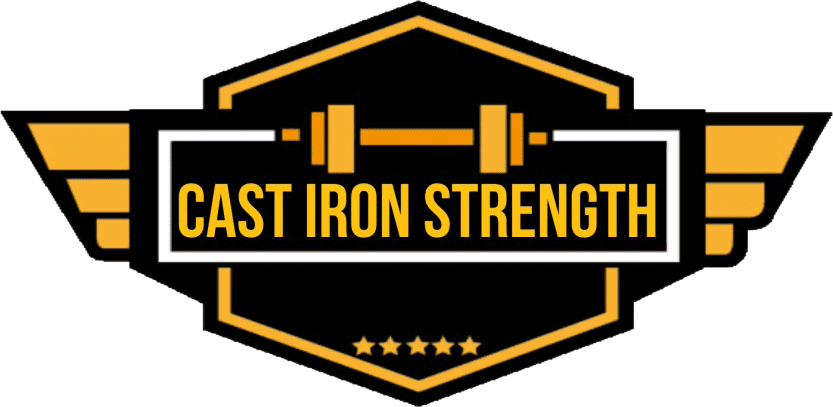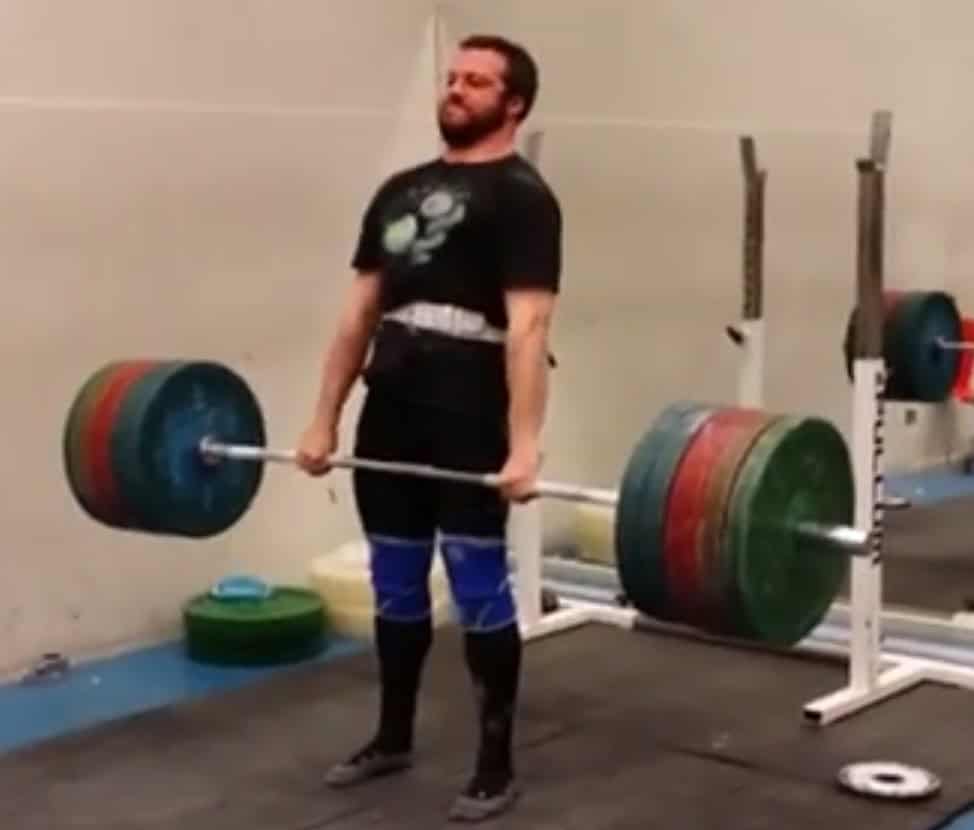A guest post by Jodi Mullen you can get more from Jodi over at All the heavy lifting, his weightlifting based blog/website.
Around a year ago, I started training as a weightlifter – though my interest in the sport goes back a little further than that. Through sheer serendipity, I first got into strength training not long before the London Olympics in 2012 and became absolutely hooked on watching weightlifting over the course of the Games, marvelling at the strength and technical prowess of the athletes. With my recent induction into the world of barbell training and my Olympic inspiration, it occurred to me, “Hey, maybe I can do that!”
However, when I asked about learning the snatch and clean & jerk in between fighting for the one squat rack at the gym I was attending at the time, all I got was blank looks. When I consulted a few friends who I knew to be better versed in the iron sports than me, the reaction was one of bewilderment. Why would anyone want to learn lifts that were both extremely difficult and really obscure, they wondered? Why indeed – but their reaction only made me more determined to find someone who could teach me the Olympic lifts.
I’ll put this out there right now – I’m not by any means what you would consider naturally athletic. In fact, I spent most of the 10 years between when I left school and when I discovered lifting actively avoiding any form of physical exertion. So I was pleasantly surprised when I finally got myself under a bar that I seemed to have a reasonably good level of basic strength and made solid progress with minimal instruction in the squat and deadlift, though admittedly not so much in the upper body lifts.
These initial gains perhaps gave me unrealistic expectations about how I would progress with the Olympic lifts. Several months later, after I had switched gyms, I stumbled across an ad at my new gym for a weightlifting workshop where I could learn the snatch and clean & jerk and practically fell over in my haste to sign up. The workshop was a great experience; over the course of five weeks I got a good grounding in the lifts and came to the conclusion that weightlifting was definitely for me.
It wasn’t all plain sailing from there but this brings me neatly to the main things I’ve learned over the last year.
#1 You Need A Coach
After finishing the workshop, I switched my training from a powerlifting-based approach over to weightlifting. I had made the decision that I wanted to be a weightlifter and had the goal of competing at some point in the next year. Aided by the eternal wisdom and nearly endless resources of the internet, I thought it would be possible to coach myself and progress steadily. Big mistake. In truth, I had absolutely no idea what I was doing, was making numerous glaring technical errors and was coming along very slowly indeed.
After a few months of one step forward two steps back, I finally accepted that it was time to get myself some regular coaching if I was going to get anywhere. Within the space of about a month, I had made more progress than I had in the previous three months combined. There’s simply no substitute for the immediate feedback you get from working one on one with a good coach, nor for their experience and expertise when it comes to exercise selection and programming.
#2 Always Keep It Simple
I have quite an analytical mind and this tends to cross over into my lifting; I like to know the rationale behind the exercises in my program, I try to look for things I can improve. However, when it comes to actually being in the gym, this isn’t really a very good habit to be in. One of the best pieces of advice I’ve been given over the last year is “Don’t think, just lift”. In short, try not to actively think about any one aspect of your lifts – another will inevitably suffer as a result. Instead, clear your mind so that points of technique become as automatic as possible.
Sometimes there’s a danger of over-complication outside the gym too. It’s very easy to get hung-up on things you read and see online and spend a huge amount of time obsessing over inconsistencies in your lifts that will go away simply by practicing for long enough. Of course, the internet is a fantastic resource for any lifter but the beginner doesn’t have the necessary experience or knowledge to work out which drills and programmes are relevant for them, or to separate information from misinformation. Sometimes too much knowledge is a dangerous thing!
#3 You Should Train With Others
For the first few months of my training as a weightlifter, I lifted alone. While this had certain advantages – I could train on my own schedule, mostly – it wasn’t always very much fun. If I was having a bad day, there was nobody else there to offer me perspective or help lighten the mood and if I felt tired or lazy and thought about skipping training, I had no way of being held accountable for slacking. Basically I came in to the gym, attempted to do my thing and left, usually without speaking to anybody.
For the last 4 or 5 months I’ve been training with a partner every session and I’ve also got to know the other lifters in my gym a lot better. Turning training into a more sociable experience has made a world of difference and usually means that even if things aren’t going well for me, there’s some fun to be had in the gym. It also introduces an element of healthy competition into the training environment as people try to outdo each other in various amusing ways.
#4 Strong Is Happy
If you’re just starting out, take the opportunity to get strong. During the first 6-8 months of my training as a weightlifter, I criminally neglected my upper body strength. At 90 odd kilos, I couldn’t bench my bodyweight, couldn’t put 60kg overhead and did only sporadic ab or back work – I was weak. Let’s be honest; even those of us not overly interested in aesthetics at least want to look like we lift weights. There is of course more practical advantages to being all-round strong including but not limited to improved self esteem, injury prevention, improved body composition and improved stability overhead.
Another unexpected benefit has been that incorporating more strength and hypertrophy work into my training has given me something else to work on when progress in the snatch and clean & jerk haven’t been forthcoming. It’s good to be able to come into the gym and have the opportunity to set PBs in an assortment of assistance exercises and measure progress in other ways while waiting for that next weightlifting milestone to go down.

#5 You Should Compete
Without a doubt the single best thing I’ve doing during my first year as a weightlifter has been to compete. I lifted at the Scottish Open in February 2014 and immensely enjoyed the experience. Walking out on the platform and lifting in front of a crowd, being cheered on by people I knew, the adrenaline rush – everything made me feel like I was actually a weightlifter, rather than someone who just messed about with the snatch and clean & jerk in training. Afterwards, I found that I had a much more clear sense of my goals and what the purpose of my training was. Pulling off the occasional great lift in training is fine but being able to repeat that consistently on the competition platform is what matters.
Many new lifters are worried that they should achieve a certain total before they enter a competition or they’ll be laughed off the platform for lifting much smaller weights than other competitors. In my experience, this is rubbish. Every single entrant at the meet I lifted in received respect and support from the crowd, regardless of the weights they lifted. Those in danger of bombing out seemed to get even more cheering on – there was a genuine desire on the day to see everyone succeed. If you’re in two minds about competing for fear of embarrassing yourself, don’t be – just put your name down and go for it.
The Year Ahead
The last year has been an instructive one and while I’ve definitely made some mistakes, I feel that I’ve learned a valuable lesson from all of them. With my first competition under my belt, I’m really looking forward to seeing what the next year of my training holds. The first and most obvious goal for me is to become a more technically proficient lifter, particularly in the snatch and the jerk. Improving my efficiency should put a significant number of kilos on my total. Aside from that, I’d like to compete as often as possible, continue to enjoy my training as much as I have been and stay injury free.



